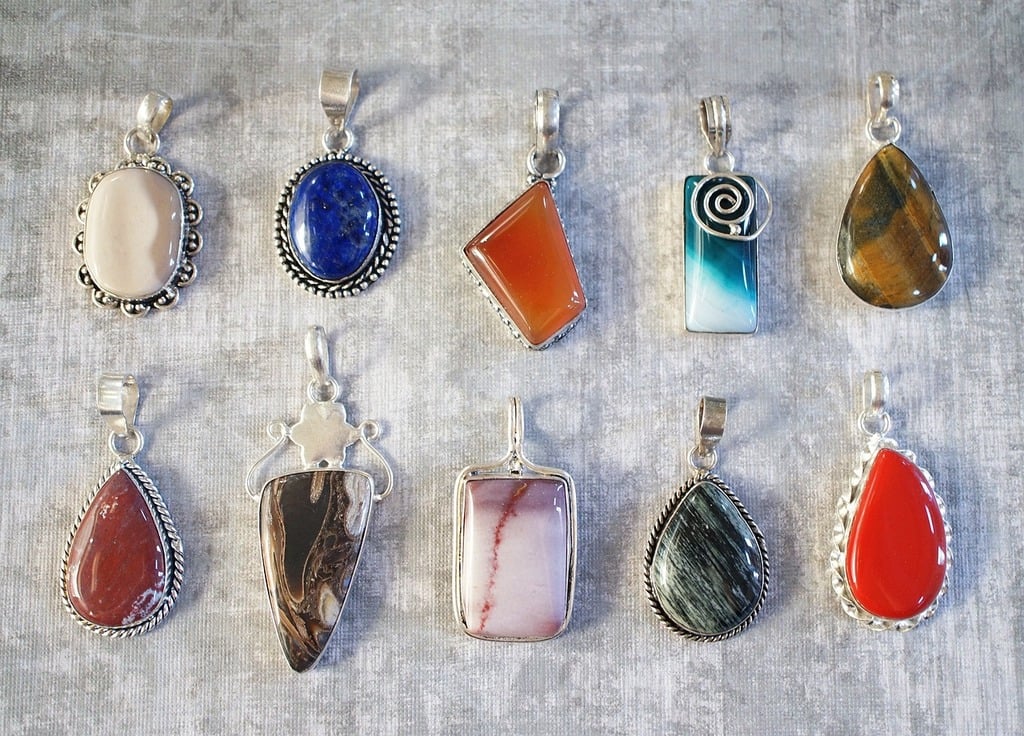
Table of Contents
- The Different Types of Jewelry and Their Special Needs
- Home Remedies for Jewelry Cleaning: Simple and Effective Methods
- Professional Jewelry Cleaning: When is it Advisable?
- Tips for Preventing Tarnish and Soiling
- Jewelry Storage: How to Protect Your Jewelry from Damage
- Frequently Asked Questions (FAQs)
Jewelry pieces are often more than just accessories – they are memories, heirlooms, and symbols of love and appreciation. To preserve their brilliance for years to come, regular cleaning and care are essential.
Dirty jewelry loses its shine and can even be damaged. Therefore, it is important to know the right methods for cleaning and caring for your jewelry.
General Tips for Jewelry Care
To ensure your jewelry stays beautiful for a long time, remove it before sports, showering, or bathing. Moisture and sweat can damage the surface of jewelry or cause discoloration. Store jewelry in a dry, cool place and avoid contact with cosmetics and chemicals such as hairspray, perfume, or nail polish remover.
Care of Silver Jewelry
Silver jewelry tends to oxidize over time, resulting in a tarnish. A simple method for cleaning tarnished silver is to use a silver polishing cloth. Alternatively, you can soak the jewelry in a bath of lukewarm water, salt, and aluminum foil.
This method dissolves the oxidation layer and restores the silver’s shine. For stronger discoloration, a special silver bath can be used.
Care of Gold Jewelry
Gold is a robust and durable material that requires little care. However, avoid contact with chlorinated water, as chlorine can discolor gold.
Clean gold jewelry with a soft cloth and a little mild soap. For heavier soiling, lukewarm water with dish soap can be used. Gold-plated jewelry should be treated with particular care, as the gold layer is delicate.
Care of Stainless Steel Jewelry
Stainless steel jewelry is low-maintenance and durable. Regularly polish it with a soft microfiber cloth to prevent scratches. For dirt, you can use warm water and mild soap.
A special polishing cloth can be used for extra shine, but avoid pressing too hard to prevent scratches.
Care of Pearl and Gemstone Jewelry
Pearls and gemstones are more delicate than metal and require special care. Clean pearls only with a soft, damp cloth and avoid contact with chemicals.
Gemstones can be cleaned with a soft cloth or mild soapy water depending on their hardness and sensitivity. Be careful not to clean gemstone jewelry in silver baths, as this can damage the stones.
Home Remedies for Jewelry Cleaning: Simple and Effective Methods
For cleaning jewelry made of precious metals and robust gemstones, you can use the following home remedies:
- Dish soap solution: Mix a few drops of dish soap with lukewarm water and let your jewelry soak for a few minutes. Gently brush it with a soft toothbrush and rinse thoroughly with clean water.
- Baking soda paste: Mix baking soda with water to form a paste and apply it to your jewelry with a cotton swab. Let the paste sit for a few minutes, then gently clean it with a soft toothbrush. Rinse thoroughly with clean water.
- Citric acid: Add a few drops of citric acid to lukewarm water and let your jewelry soak for a few minutes. Rinse thoroughly with clean water. Caution: Do not use citric acid on jewelry with pearls or sensitive gemstones.
Professional Jewelry Cleaning: When is it Advisable?
Professional jewelry cleaning is recommended in the following cases:
- Heavily soiled jewelry: If your jewelry is heavily soiled, a professional cleaning can restore its shine and beauty.
- Delicate gemstones: Jewelry with delicate gemstones such as opals, pearls, or emeralds should be professionally cleaned to avoid damage.
- Complex jewelry: Jewelry with intricate details or multiple gemstones should be professionally cleaned to ensure all areas are cleaned.
Tips for Preventing Tarnish and Soiling
To prevent your jewelry from tarnishing and becoming soiled, follow these tips:
- Remove your jewelry before showering, swimming, or exercising.
- Avoid contact with chemicals such as chlorine, cleaning agents, and cosmetics.
- Store your jewelry in a dry and dark place.
- Wear your jewelry regularly to protect it from tarnishing.
Jewelry Storage: How to Protect Your Jewelry from Damage
Proper jewelry storage is essential to protect your jewelry from scratches, dents, and other damage.
- Use jewelry boxes or cases with padded compartments.
- Don’t store jewelry loose in a drawer.
- Wrap delicate jewelry like pearl necklaces in a soft cloth.
- Separate jewelry made from different materials to avoid scratches.
Engrave your own Jewelry
Thanks to your creativity and Vecieri’s jewelry configurator, you can create personalized jewelry just as special as you.
Here’s how to turn your favorite design into a lasting memory:
- Find Your Perfect Piece: Browse our collection and choose the necklace or bracelet that best suits his style.
- Pick Your Design: Choose among all the design options. It can be a picture, a message, or anything you’d like!!
- We Do the Magic: Our whiz-bang tech transforms your design into a high-quality engraving. No need to worry about fancy editing skills, we’ve got it covered.
- See It Before You Get It: Before we engrave your masterpiece, you’ll get a preview to make sure everything looks perfect.
Every set of engraved jewelry tells a unique story, a personal narrative close to the wearer’s heart.
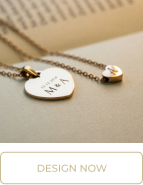
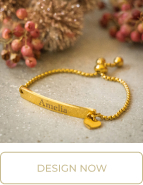
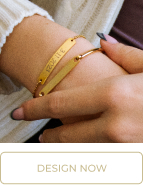
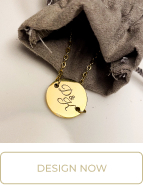
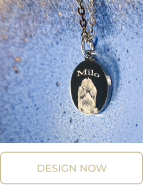
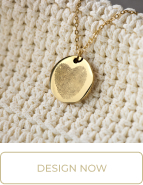
Frequently Asked Questions (FAQs)
- How often should I clean my jewelry? The frequency of jewelry cleaning depends on various factors such as the material, gemstones, and type of jewelry. As a general rule, clean your jewelry every few weeks to maintain its best condition.
- Can I clean my jewelry with home remedies? Yes, you can use home remedies to clean jewelry made of precious metals and robust gemstones, such as dish soap solution, baking soda paste, or citric acid. However, keep in mind that these methods are not suitable for all types of jewelry. Delicate gemstones like pearls or opals should only be cleaned with water.
- When should I have my jewelry professionally cleaned? Professional jewelry cleaning is recommended for heavily soiled jewelry, jewelry with delicate gemstones, and complex jewelry.
- How can I prevent my jewelry from tarnishing? To prevent tarnishing, remove your jewelry before showering, swimming, or exercising, avoid contact with chemicals, store your jewelry in a dry and dark place, and wear your jewelry regularly.
- How should I store my jewelry? Use jewelry boxes or cases with padded compartments to store your jewelry. Separate different types of jewelry to avoid scratches and wrap delicate pieces in soft cloth.
- Can I repair my jewelry myself? You can make simple repairs like fixing scratches or tightening loose stones yourself. However, for more complex repairs, consult a jeweler.
- Which cleaning agents should I use for my jewelry? Use mild cleaning agents like dish soap or baking soda for jewelry made of precious metals and robust gemstones. Avoid harsh cleaning agents like abrasives or chlorine bleach.
- Can I clean my jewelry in an ultrasonic cleaner? Ultrasonic cleaning can be an effective method for cleaning jewelry. However, not all types of jewelry are suitable for ultrasonic cleaning. Delicate gemstones like opals or pearls can be damaged by the vibrations.
- What should I do if my jewelry is bent? Do not attempt to repair bent jewelry yourself. Take it to a jeweler for professional repair.
- Where can I have my jewelry professionally cleaned? You can have your jewelry professionally cleaned at a jeweler’s, watchmaker’s, or some department stores.
Additional Tips
- Research the materials and gemstones of your jewelry before cleaning.
- Test any cleaning agent on an inconspicuous part of the jewelry before applying it to the entire surface.
- Allow your jewelry to dry thoroughly after cleaning.
- Polish your jewelry regularly with a soft cloth to maintain its shine. With proper care and cleaning, you can enjoy the beauty of your jewelry for years to come.
